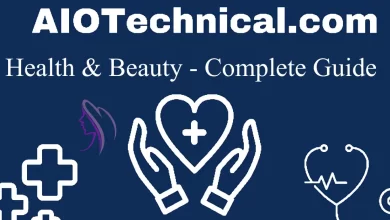Have you ever wondered who keeps the vast world of healthcare spinning? It’s not just doctors and nurses. The medical field boasts a diverse roster of heroes, each playing a unique and crucial role in patient care.
From labs to ORs, every corner is filled with associated medical professionals. They are the backbone, working tirelessly behind the scenes in the healthcare field.
Ready to meet them? Let’s dive in!
Radiologic Technologists
Radiologic technologists are key players in the medical team. They work with advanced imaging technologies which include:
-
X-rays
-
CT scans
-
MRIs
-
ultrasounds
-
nuclear medicine imaging
They are responsible for producing high-quality images that aid in diagnosing diseases. They also help radiologists to prepare patients for procedures and ensure safety protocols.
Plus, they are experts at positioning patients effectively to lessen radiation exposure.
Physical Therapists
PTs play a significant role in the rehabilitation and recovery of patients. They work with individuals to:
-
restore mobility
-
improve range of motion
-
relieve pain
In addition, they are highly trained in various techniques such as:
-
exercise therapy
-
manual therapy
-
electrotherapy
Not only that! They also educate patients on proper body mechanics and injury prevention. Their goal is not only to help patients recover but also to prevent future injuries.
Medical Laboratory Scientists
medical professionals are responsible for running lab tests and analyzing patient samples. They help doctors in making accurate diagnoses and monitor ongoing treatments. They are highly skilled in analyzing:
-
blood
-
body fluids
-
tissues
-
other specimens
They provide essential lab services for diagnosing and monitoring diseases. This early detection of illnesses enables timely treatment.
They use state-of-the-art technology and equipment to perform complex tests. Without their expertise, many medical diagnoses would not be possible.
Pharmacists
Pharmacists ensure a safe and effective drug therapy for patients. Their responsibilities include:
-
dispensing medications
-
providing medication counseling
-
monitoring drug interactions or side effects
Additionally, they help healthcare teams develop treatment plans for patients. They also aid in preventing medication errors and promoting proper medication use.
Respiratory Therapists
Respiratory therapists specialize in treating patients with breathing problems. They are trained to:
-
administer oxygen therapy
-
use mechanical ventilation
-
manage respiratory medications and treatments
They work with doctors and nurses to deliver critical care for patients with:
-
asthma
-
COPD
-
pneumonia
Their quick thinking and expertise can save lives in emergencies. They can also educate patients on proper breathing techniques. This can help patients to manage their respiratory conditions and maintain their health.
Audiologists
Audiologists specialize in hearing and balance disorders. They work with patients of all ages, from infants to the elderly. Their work includes fitting hearing aids and managing tinnitus.
They also provide education on hearing loss prevention and management. Furthermore, they play a big role in identifying hearing problems early on. This allows for timely intervention and treatment, leading to better outcomes for patients.
Occupational Therapists
These professionals help patients develop skills for daily living and work activities. They focus on:
-
improving motor skills
-
balancing muscle strength
-
retraining cognitive abilities
They also assist in modifying environments to accommodate individuals with disabilities. Their role is essential in helping patients return to their normal lives after an injury or illness.
Moreover, they provide valuable support for those with chronic conditions. This allows patients to maintain their independence and quality of life.
Speech-Language Pathologists
Speech-language pathologists specialize in communication disorders. They assess, diagnose, and treat speech, language, voice, and swallowing disorders.
They develop personalized treatment plans for their patients ranging from children to adults. These professionals work in various settings including:
-
schools
-
hospitals
-
private clinics
Also, they provide support for individuals with cognitive or neurological impairments. Not only that! They give early intervention, aiding children in reaching developmental milestones.
Medical Social Workers
Healthcare social workers support patients with emotional and financial challenges during medical treatment. They do this by:
-
assessing the patient’s needs
-
connecting them to resources
-
providing counseling and advocacy
They collaborate with the healthcare team to provide comprehensive patient care. Their empathy, compassion, and community knowledge make them valuable assets in healthcare.
Medical Records and Health Information Technicians
These professionals maintain patient records and ensure the privacy of medical information. They work with electronic health records to help providers access patient information quickly.
Their attention to detail is crucial in providing accurate medical records for:
-
patient care
-
research
-
billing purposes
They also aid in protecting patient confidentiality and complying with healthcare regulations.
Surgical Technologists
These technologists are vital to the surgery room team. They prepare the operating room and equipment ensuring everything is sterile and ready for surgery. During procedures, they assist surgeons and nurses in:
-
passing instruments and supplies
-
monitoring the sterile field
-
anticipating the surgeon’s needs
They also help with patient care and safety, allowing the surgeon to focus on their work. Finally, they ensure surgeries run smoothly and patients receive the best possible care.
Dental Hygienists
Dental hygienists work alongside dentists to provide comprehensive oral healthcare. They perform a variety of tasks such as:
-
cleaning teeth
-
taking X-rays
-
applying fluoride and sealants
Educating patients on proper oral hygiene is also an essential part of their role. They can help to detect and prevent dental problems, promoting health and wellness.
Dietitians and Nutritionists
Dietitians and nutritionists are experts in food and nutrition. They advise on healthy eating habits to help maintain or improve health. They work with clients to create personalized meal plans to:
-
support weight loss
-
manage allergies
-
improve overall health
They educate patients on proper nutrition’s role in preventing or managing chronic diseases. They collaborate with doctors to provide patients with proper nutritional support during treatment.
For those with diabetes or prediabetes, proactive healthcare is crucial. Consulting a dietitian or nutritionist can help find a nearby diabetes doctor to coordinate your care plan.
Exploring Different Types of Associated Medical Professionals
Now that we’ve explored the types of associated medical professionals, remember, your health is a team effort. Lean on these experts, ask questions, and take an active role in your care.
Begin by connecting with a professional who resonates with your current health needs. Ready to take the next step? Reach out and make that appointment today!
Did you find this article helpful? Check out the rest of our blog now!




